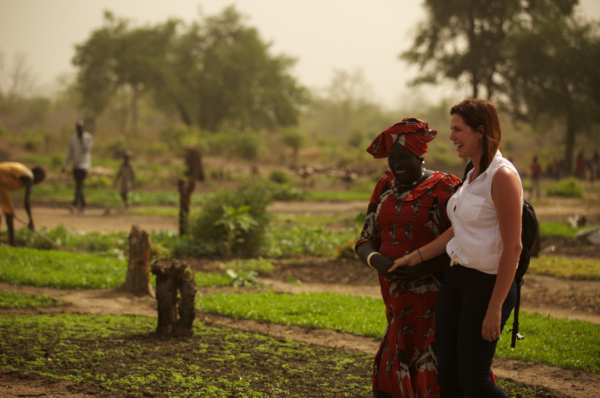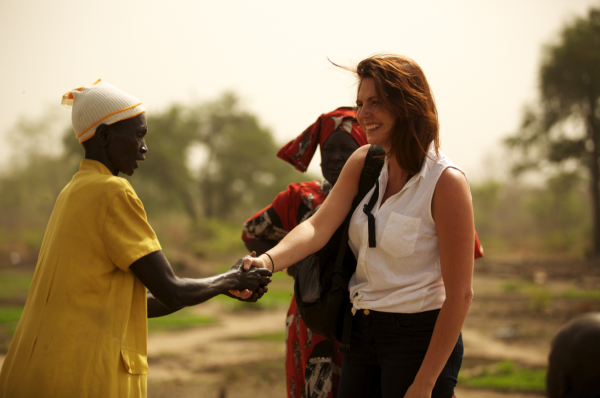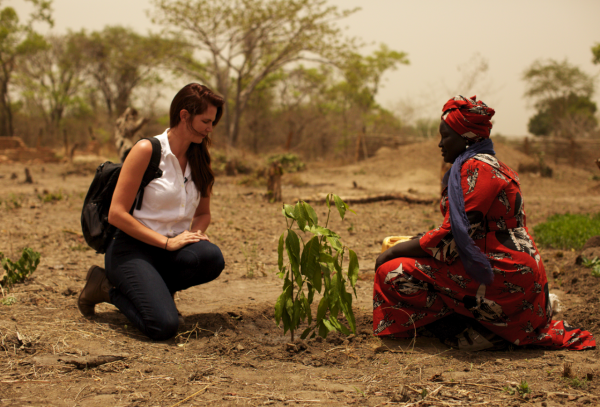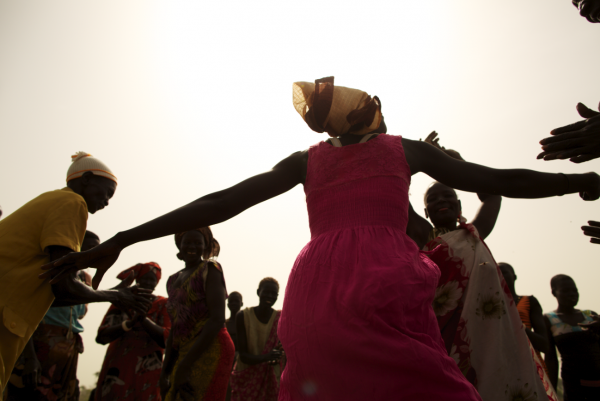A Place to Heal
Triumph and celebration in Amedichi
In the village of Amedichi, many women are widows due to the civil war in South Sudan. They face extreme hardship and devastating poverty, with minimal support as they struggle to provide for their children and the orphans of the village. This included walking over two hours to reach clean water.
The resilient women of Amedichi were determined to transform their current challenges into future opportunities. They formed a collective that focused on horticulture projects that would generate an income while also planning for future developments.
The people who bought our INK scarf gave Amedichi water.
When the scarf sold out, we immediately drilled Amedichi’s water well. And the very next day the women planted their gardens, which soon prospered. Hearing of their motivation and enthusiasm from our team on the ground was inspiring. Returning to Amedichi to experience it for myself is a highlight of this trip.
We pull into the village and for a moment I’m stunned into silence. After seeing so much more adversity on this trip than ever before, the vibrancy of Amedichi is a shock to my system. The village has blossomed in every respect – the gardens, the women, the children…they’re all thriving.
Everything seems a little brighter and louder and happier in Amedichi.
The leader of this collective is a brave and compassionate woman named Rebecca. She refuses to be a burden on others and leads by example. Rebecca has shown the women how therapeutic it can be to work hard and build something together. She tells me, “Our village, made up of women and orphans, has the mind and the will to make ourselves sustainable. We believe our vulnerability should not stop us.”

Unfortunately, the population of Amedichi continues to grow as more women and children lose their families in the violent civil war. But I find great comfort in knowing that there is a home for them. They are coming from a place of trauma to one of healing. They are moving from devastation to connection.

The village bought a mango tree for us to plant together as a symbol of our partnership and connection. Rebecca tells me: “As we plant this mango tree, and as it grows and produces fruit, we will remember you. You will be a part of us, and our children, forever. When you are an old lady, you will be able to come and sit under your tree with your grandchildren, for our village is now your home.”

Rebecca asks me to help her plant it and I work hard to keep my tears from falling. On this day, in this place, there is only laughter and dancing and joy. This day is my best day.
